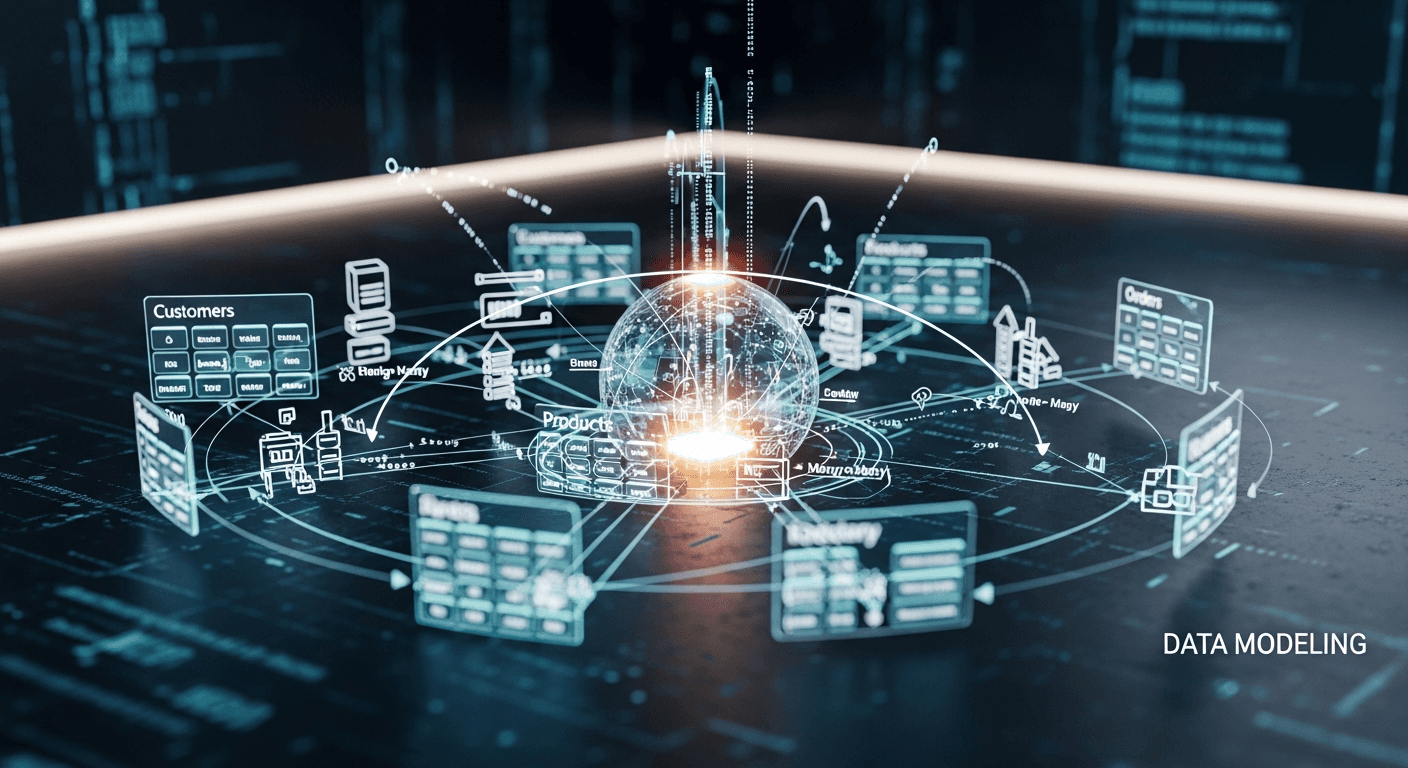Quantum Computing Playbook: How It Works and Why It Matters Now
Quantum computing is not just another technology, it’s a revolution that set to transform the world as we know it. Unlike classical computers that use bits (0 or 1), quantum computers use qubits, which can exist as both 0 and 1 at the same time. This unique ability allows them to process massive amounts of data in parallel and solve problems that today’s fastest supercomputers would take thousands of years to crack.

In this blog, we’ll take a step by step journey into the world of quantum computing. You’ll learn:
What Quantum Computing Is – A simple explanation of how it works and why it matters.
Core Principles – Superposition, entanglement, and interference explained in plain language.
Quantum vs. Classical – The real differences and when quantum truly has the edge.
Hardware Basics – Qubits, processors, and the special systems that power them.
Software & Algorithms – Tools like Qiskit and famous algorithms driving breakthroughs.
Real-World Applications – How industries like medicine, AI, finance, and cybersecurity are using quantum tech.
Challenges Ahead – Issues like error correction, scalability, and stability.
Industry Players – The big names (IBM, Google, Microsoft) and startups leading the race.
The Future – What quantum advantage means and how it could impact society and the economy.
In this article, you’ll understand what quantum computing, Why it’s one of the most important technologies of time and how it could shape the future of innovation.
What is quantum computing with example
Quantum computing is a completely new way of processing information, very different from traditional computers. Regular computers use bits that can only be 0 or 1, but quantum computers use qubits, which can be both 0 and 1 at the same time. This unique ability gives them the power to solve extremely complex problems much faster than classical machines.
For example, imagine you have a huge maze to find an exit. A regular computer tries one path at a time, but a quantum computer can explore many paths at once, finding the exit much quicker. This makes quantum computing very useful for things like cracking codes, designing new medicines, or improving artificial intelligence.
Historical Development and Key Innovators in Quantum Computing

1980s–1990s: The roots of quantum computing go back to scientists like Paul Benioff, Richard Feynman, and David Deutsch, who first introduced the core ideas. During this time, Peter Shor created an algorithm for factoring huge numbers, and Lov Grover designed a faster search method. These breakthroughs proved that quantum computers could solve problems much faster than traditional machines.
2000s–2015: Researchers started building the first real qubits using methods like superconductors, trapped ions, and photons (light particles). These experiments showed that quantum computers weren’t just theory anymore—they could actually work in practice.
2016–Present: Tech giants such as IBM and Google brought quantum computing to the cloud, so researchers and developers worldwide could access it. Since then, progress has been rapid. Better error correction, improved software, and bigger, more powerful quantum processors. Today, quantum computing is no longer a distant dream, It’s getting closer to real world applications.
Quantum Computing Principles
Qubits: The Building Blocks
Qubits are the fundamental units of a quantum computer. Unlike normal bits that can only be 0 or 1, qubits can be both at the same time. To explain this, scientists often use the Bloch sphere, a 3D way of showing all the possible states a qubit can take. Qubits are controlled through quantum gates, and when two qubits interact, they can become entangled—a powerful connection that gives quantum computing its unique strength.
Superposition
Superposition lets qubits exist in multiple states at the same time—like a coin spinning in the air. This allows quantum computers to explore many possibilities faster, though measurement forces a single outcome.
Entanglement
Entanglement links qubits so that their states are connected instantly, even far apart. This strange property boosts computing power and enables things like secure communication.
Quantum Interference
Quantum systems act like waves that can cancel or reinforce each other. Algorithms use this interference to cancel wrong answers and amplify correct ones.
Decoherence
Decoherence happens when qubits lose their delicate state due to outside interference. Scientists fight it with isolation, better materials, and error-correction methods.
Quantum Hype vs Reality
Quantum computing is hot right now, with headlines promising a revolution in every industry and wild claims about instant breakthroughs. But the reality is more nuanced. Today’s quantum computers are noisy, small-scale prototypes, still a long way from outperforming regular machines in most practical tasks. Yes, progress is real, milestones in error correction and qubit designs are being made, and new hybrid algorithms show promise. However, most business and daily applications remain out of reach, and quantum advantage for general use is still in the future. The true impact will come slowly, as the tech matures and real-world solutions are validated. For now, quantum’s role is exciting but experimental, bridging ambition and genuine capability
Quantum Computing vs. Classical Computing

Fundamental Differences
Classical computers use bits (0 or 1), while quantum computers use qubits, which can be both 0 and 1 at the same time. Classical machines rely on fixed logic gates, but quantum machines use quantum gates and properties like superposition and interference to explore many possibilities simultaneously.
Advantages and Limitations
Quantum computing can simulate molecules, solve optimization problems, and speed up certain algorithms far beyond classical computers. But challenges like noise, limited qubits, and programming complexity mean it’s not yet ready to replace classical systems. Instead, it’s best suited for specialized problems.
When Quantum Wins
Quantum shines in areas like drug discovery, materials science, cryptography, and optimization problems. Today, hybrid approaches (mixing classical + quantum) are already showing practical benefits, even before fully reliable quantum machines arrive.
Simple Example
Finding the fastest route between many cities takes huge effort for classical computers, which test routes one by one. A quantum computer can explore multiple routes at once and use interference to highlight the best path—solving the problem much faster.
Quantum Hardware and Infrastructure
Types of Qubits
Superconducting qubits: Tiny circuits kept near absolute zero; fast and widely used.
Trapped ions: Charged atoms controlled by lasers; very accurate and stable.
Photonic qubits: Use particles of light; can work at room temperature but face unique errors.
Quantum dots & spin qubits: Use electron spins in semiconductors; promising for compact chips.
Quantum Processors
A quantum processor is an array of qubits controlled by electronics, lasers, or microwaves. Special detectors read the qubit states, while constant calibration keeps operations accurate.
Cooling & Environment
Superconducting qubits: need dilution refrigerators just above absolute zero.
Trapped ions: require ultra-high vacuum chambers and precise lasers.
Photonic systems: depend on high-quality optical components and sensitive detectors.
Current State of Development
Quantum hardware is advancing rapidly, with improvements in qubit count, error reduction, and inter-qubit connectivity. Researchers have recently demonstrated basic error-corrected quantum bits—a significant milestone toward building reliable quantum computers.
Quantum Algorithms and Software
Foundational Algorithms
Shor’s Algorithm: Factors large numbers super fast, which could break today’s encryption methods.
Grover’s Algorithm: Speeds up unstructured searches, making optimization and database tasks more efficient.
VQE & QAOA: Variational and sampling methods designed for today’s noisy quantum computers, useful in chemistry, optimization, and simulations.
Platforms and Tools
Open-source toolkits like Qiskit (IBM), Cirq (Google), and PennyLane let developers program quantum computers. Cloud access from providers makes it easy to experiment, while compilers optimize code for specific quantum hardware.
Circuit Design & Optimization
Building quantum circuits means mapping problems into qubits, choosing the right setup, and using error-mitigation to handle noise. These techniques prepare us for scaling up to more powerful, fault-tolerant quantum machines.
Practical Applications of Quantum Computing
Chemistry and Pharmaceuticals
Quantum computers can model molecules and reactions far better than classical computers, helping scientists design new drugs, predict protein folding, and speed up chemical discoveries.
Materials Science
They enable precise simulations of new materials like superconductors, advanced batteries, and solar cells, paving the way for breakthroughs in energy and electronics.
Cryptography and Cybersecurity
Quantum algorithms such as Shor’s could break today’s encryption, pushing industries toward post-quantum cryptography and flexible, crypto-agile security systems.
Artificial Intelligence and Machine Learning
Quantum methods can enhance AI with faster optimization and sampling. While still early, hybrid quantum-classical systems are showing strong potential.
Financial Modeling and Optimization
Banks and investors can use quantum algorithms for portfolio optimization, risk assessment, and faster, more accurate financial predictions.
Energy and Climate
Quantum computing can optimize power grids, improve carbon capture materials, and design better energy storage systems, supporting sustainable solutions.
Quantum Computing Challenges
Quantum computing faces several important challenges before becoming widely practical:
Quantum Error Correction: Because qubits are fragile and prone to errors, logical qubits are created by combining many physical qubits using complex error-correcting codes like surface codes. This requires a lot of extra qubits and effort, so reducing error rates and improving correction techniques is a key focus.
Scalability: Controlling large numbers of qubits uniformly, connecting separate quantum modules, and reducing interference (cross-talk) between qubits are essential for building larger quantum computers.
Hardware Reliability: Qubits can drift, control systems need frequent calibration, and hardware components don’t always work perfectly, all of which limit how long and accurately quantum computers can run algorithms.
Practical Algorithms: Researchers are still identifying which problems fit well with imperfect quantum hardware and developing benchmarks to demonstrate real-world utility.
Industry Landscape
Many companies and research groups are driving quantum computing forward:
Major Players: IBM, Google, Microsoft, IonQ, Quantinuum, Rigetti, PsiQuantum, and others lead in building hardware and platforms.
Ecosystem: Startups, national labs, and academic groups contribute with innovative hardware, software, and applications.
Recent Milestones: Progress includes larger entangled qubit systems, demonstrations of quantum error correction, and promising results on domain-specific tasks.
Investment and Market Growth: Significant public and private funding supports hardware and software development, with enterprises running hybrid quantum-classical pilot projects.
Case Study – Random Circuit Sampling: Early efforts showed big gaps between quantum and classical computing on specific tasks, but classical advances narrowed these gaps. This highlights the importance of focusing on practical usefulness rather than headline-grabbing benchmarks.
Roadmaps: Major vendors aim to scale up qubit numbers, reduce errors, develop modular systems, and build quantum-focused supercomputers. Near-term goals focus on usable performance through error mitigation and hybrid approaches until full fault-tolerant systems arrive.
Future of Quantum Computing
The future promises powerful and practical quantum technologies:
Quantum Advantage and Utility: Moving beyond claims of “quantum supremacy,” the goal is reproducible and useful results on meaningful problems, supported by open benchmarks and data.
Roadmaps: Advances in hardware such as longer qubit coherence, better materials, and photonic connections; and smarter software like hardware-aware compilers and automated error correction.
Societal and Economic Impact: Quantum breakthroughs could revolutionize drug discovery, energy, logistics, and secure communication. Developing a skilled workforce and setting standards for ethical and responsible use will be critical.
Integration with Classical Systems: Quantum computers will act as accelerators alongside classical high-performance and cloud computing, working through APIs and workflow managers.
Conclusion and Call to Action
Quantum computing is not here to replace classical computers but to complement them by tackling specific, tough problems classical machines can’t solve efficiently.
Start exploring quantum now with discovery workshops to identify use cases and build small proof-of-concept projects on cloud quantum platforms.
Prepare for the security impact by tracking post-quantum cryptography (PQC) standards and auditing cryptographic assets for crypto-agility.
Build internal expertise using hands-on tutorials, software development kits (SDKs), and partnerships with quantum technology providers.
By taking these steps today, businesses and researchers can be ready to benefit from the coming quantum revolution.




